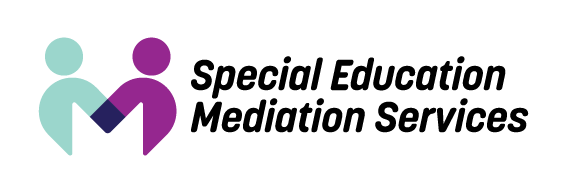
Mediation
Mediation is a federally mandated dispute resolution option under the Individuals with Disabilities Education Act (IDEA). See Section 1415(e).
When disagreements arise, SEMS provides a safe, neutral environment for team members to explore options that meet student needs. In mediation, collaborative communication helps resolve a wide range of complex special education issues. A trained special education mediator guides parties through a process that has a 70-75% agreement rate. There is no cost to parents or public agencies.
If there is a specified area of disagreement, the SEMS will schedule and conduct a mediation. In these meetings, the neutral mediator guides the participants, who may be different from the IEP team members, in identifying options and evaluating the options to meet the student’s educational needs. Conversations in mediation are confidential, can’t be used in other court proceedings and the agreement is a legally enforceable document. Mediation agreements can include topics not specified in the IDEA such as communication.
When to use Mediation:
- Any dispute.
- Eligibility for programs, services.
- Evaluation interpretations.
- Transition issues.
- Service delivery, effectiveness.
- Resolution sessions.
- Communication, relationship issues.
- As part of due process or complaint process.
The Mediator will:
- Remain neutral.
- Conduct the mediation.
- Ensure all parties have equal opportunity to express their ideas and thoughts.
- Make sure that everyone abides by the rules for appropriate conduct.
- Help the parties remain on the topic of their disagreement.
- Guide the participants towards creating an agreement.
- Record the agreement.
A Mediator will not:
- Make decisions
- Give legal advice
- Take sides
Benefits of Mediation:
- Solutions may be delivered to the student in a timelier way as opposed to the state complaint and due process timelines.
- Participants control outcomes.
- Participants become self-sufficient.
- Solutions remain local.
- Dispute resolution costs decline.
- More time, money spent on educating.
How to Prepare for and Participate in Mediation and Facilitation
Related Resources
Recent publications and videos from the Center for Appropriate Dispute Resolution in Special Education (CADRE) and other research organizations can help families and educators understand and prepare for collaborative dispute resolution.
